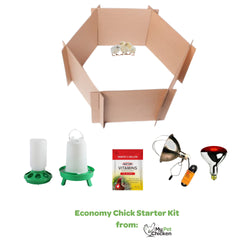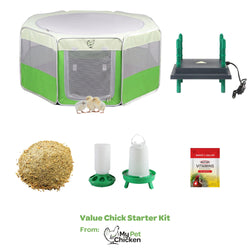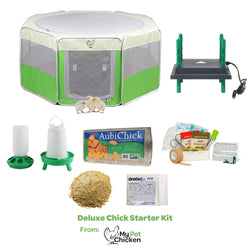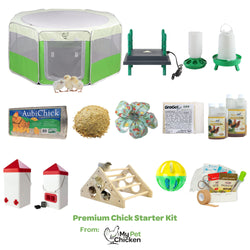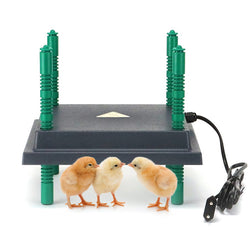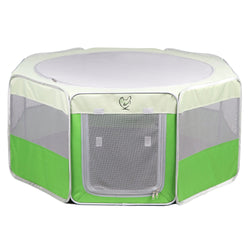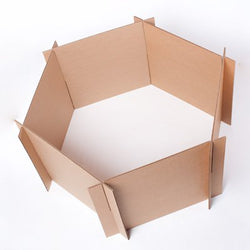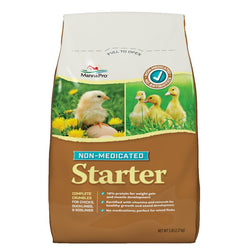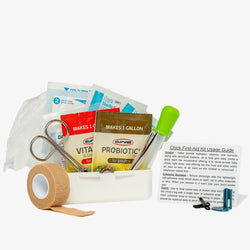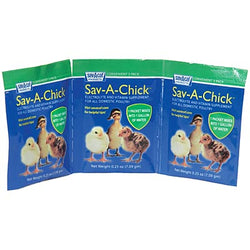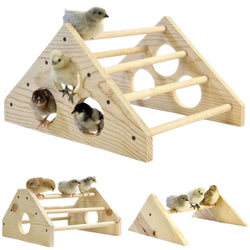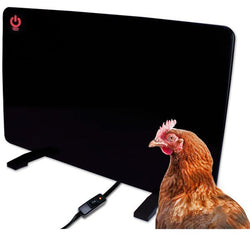What is a pasty vent, and how do I treat it?
Back to blog
A pasty vent, or "pasting up," "pasty butt," or "vent gleet," is a stress-induced condition in which droppings dry and cake up around the vent of young baby chicks. It is most dangerous when it completely blocks their vent opening, because the chick will be unable pass any more droppings. A baby chick will typically die within 2 days of onset of a blocked vent, so it's important that you remedy this problem quickly.

Once the chick is clear, dry it off with paper towels, spend a few moment near the heater if the chick seems to enjoy that, and return it to the brooder as soon as possible.
Diagnosis
A pasty vent is easy to diagnose. The dried poo will be stuck to the outside of their rear, totally or partially covering their vent:
Locating the vent
Don't mistake the navel/dried umbilical cord of a new chick for a pasted vent! The vent is beneath the tail; the navel is further down toward the legs/belly. If you remove the scab over an open navel, it will nearly always result in a dead chick, and the poor thing will die very painfully. So before removing anything, be sure you're targeting pasting, not a healing navel.Treatment
First, we only recommend you treat a chick whose vent is fully pasted, as treatment can be stressful enough to induce pasty butt! If you determine you've got a completely blocked vent, here's what to do. Keep in mind that the least-stressful thing for the chick is to treat quickly and return it to its flock-mates. The longer you have it out of its brooder, the more likely the pasted butt will recur.- Gather your materials: a paper towel, Q-tips, a portable heater or blow dryer, a bowl of warm water, and a bag for disposal of soiled items.
- Put paper towel down under where you'll be working on the chick. If you have a portable heater, place it next to your work station for the chick's comfort.
- Bring the affected chick to your work station.
- Wet a paper towel in the bowl of warm water and apply to chick's rear to soften the dried droppings.
- Give the poo a "tug", using the paper towel, and see if it comes off. (Don't be afraid if a little of the chick's fluffy rear end feathers come out, too.)
- If it doesn't, keep wetting the rear end, using either Q-tips or paper towels to dislodge the poo.
Once the chick is clear, dry it off with paper towels, spend a few moment near the heater if the chick seems to enjoy that, and return it to the brooder as soon as possible.
